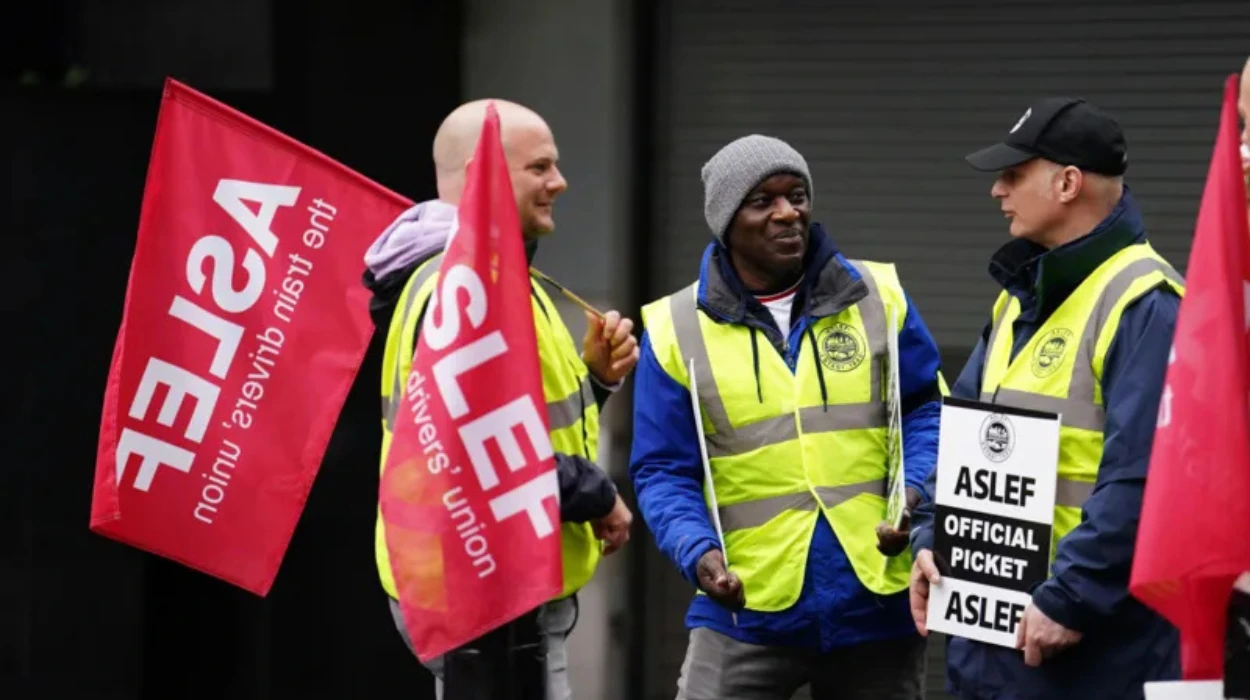In a significant shift in labor policy, the Labour government has commenced the process of dismantling Conservative-era rules that imposed stringent restrictions on strike actions by various public sector workers, including teachers, firefighters, and train staff. This move comes as part of Labour’s broader agenda to enhance workers’ rights and improve industrial relations across the UK.
Background on Strike Restrictions
The Conservative government introduced these minimum service level requirements last year amid a surge in industrial action fueled by rising inflation and public sector grievances. The legislation allowed ministers to enforce minimum operational levels during strikes in essential services, including health care, education, fire services, and transport. Proponents argued that these rules were necessary to ensure public safety and maintain essential services during industrial disputes. However, critics, particularly from labor unions, viewed them as an undue restriction on the right to strike.
Despite their introduction, the minimum service levels were never enacted during any disputes, as operators in sectors such as rail opted not to implement them even during significant walkouts earlier this year. The lack of application highlighted concerns over the practicality and effectiveness of the legislation, which unions branded as unworkable.
Labour’s Commitment to Reform
As the new government, Labour has promised to abolish these restrictions, asserting that they stifle workers’ rights and undermine the principles of collective bargaining. Deputy Prime Minister Angela Rayner articulated that the law had proven to be “pointless” and emphasized that scrapping it would allow the government to reset industrial relations. The Labour government plans to introduce a bill to formally repeal these regulations, which is expected to begin its journey through Parliament by mid-October. However, full repeal may take until next year to become law.
In the interim, Labour ministers have instructed affected departments to advise employers against enforcing the minimum service levels while the bill is pending, allowing a period of reflection and negotiation before any formal legislative changes are made.
Union Responses and Public Sector Pay
The response from labor unions has been largely positive. They welcomed Labour’s decision to roll back the minimum service levels, viewing it as a victory for workers’ rights. Unions had vehemently opposed the Conservative government’s legislation, arguing that it weakened the ability of workers to engage in meaningful industrial action.
Alongside these changes, Labour has initiated new pay deals aimed at addressing long-standing grievances among public sector workers. The government has proposed pay increases ranging from 5.5% to 6% for various public sector employees, significantly exceeding the previous Conservative government’s budgeted increase of 2%. Additionally, junior doctors in England have been offered an average deal worth 22% over two years, aimed at resolving the NHS’s most prolonged pay dispute.
Implications for Future Industrial Relations
The Labour government’s actions indicate a marked shift in the UK’s approach to labor relations. By prioritizing workers’ rights and increasing public sector pay, Labour aims to rebuild trust with union representatives and the broader workforce. This could lead to a more collaborative environment in which workers feel empowered to advocate for their rights without the fear of punitive restrictions.
Moreover, Labour has indicated its intention to enhance the process of striking by allowing unions to conduct ballots for strike action online. This change could facilitate greater participation among union members, making it easier for workers to organize and express their collective will.
Potential Challenges Ahead
Despite the positive reception from unions and public sector workers, Labour faces challenges in balancing the interests of workers with those of the public, particularly concerning essential services. Critics from the Conservative Party have raised concerns that dismantling these strike regulations could jeopardize the delivery of emergency services, leading to potential public safety risks. Shadow Business Secretary Kevin Hollinrake criticized Labour’s decision, claiming that it showed a capitulation to union interests and that the government was compromising public safety.
Furthermore, the Labour government will need to navigate ongoing industrial disputes, particularly in sectors like rail and health, where negotiations continue. The success of the new government will hinge on its ability to foster positive relations with both unions and employers while ensuring that essential services remain functional.
A New Era for Workers’ Rights
The Labour government’s commitment to abolishing the Conservative-imposed minimum service levels marks a significant turning point in the UK’s labor landscape. By prioritizing the rights of workers and investing in public sector wages, Labour is not only addressing immediate grievances but also setting the stage for a broader redefinition of industrial relations in the UK.
The upcoming months will be crucial as the government moves forward with its legislative agenda. The proposed changes could lay the groundwork for a more equitable and supportive environment for workers, encouraging a more robust and dynamic approach to labor relations in the UK.
Conclusion
As the Labour government rolls back the restrictive strike measures put in place by the previous Conservative administration, it faces both opportunities and challenges. The potential for a more collaborative industrial climate is palpable, but it will require careful management and negotiation to ensure that the rights of workers are respected while maintaining the integrity of essential services. The road ahead may be fraught with obstacles, but the commitment to enhance workers’ rights signifies a promising shift towards a more balanced and equitable labor framework in the UK.


